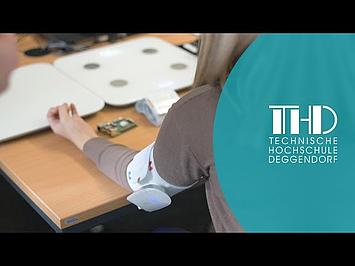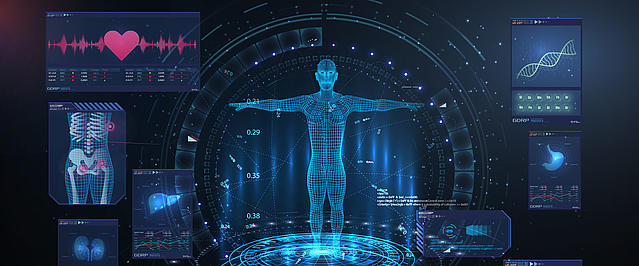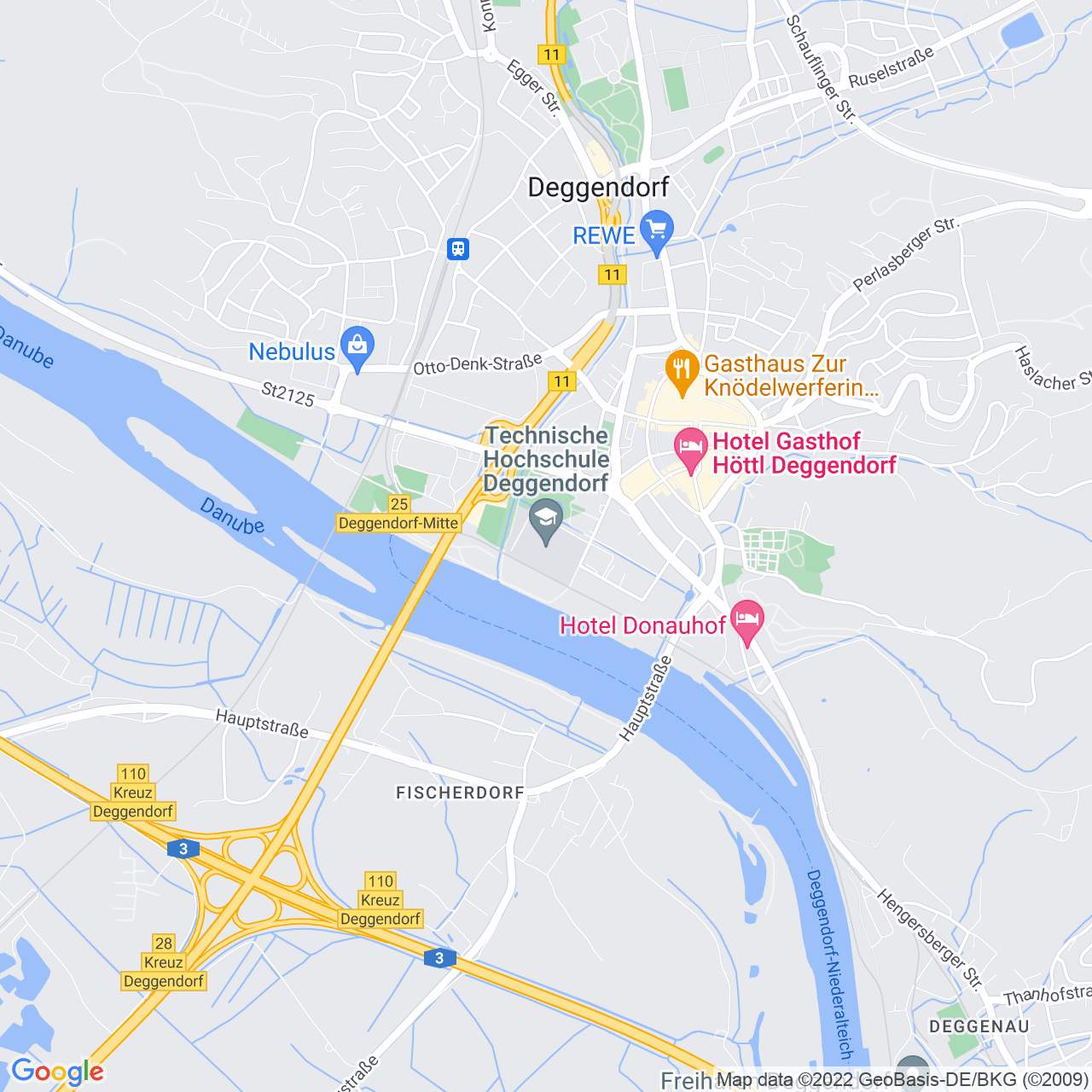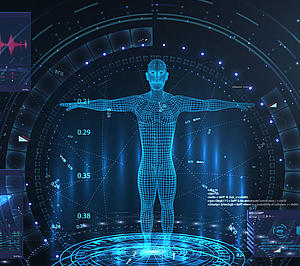The digitization of healthcare is being promoted in many different European countries
The health system is characterized by a high IT infiltration - most clinical, nursing and therapeutic processes are supported by digital network documentation systems that are used by professionals involved in all these treatment processes. Throughout these processes, private individuals and health insurance companies are billed using digital transference. This postgraduate course enables students to reinforce, deepen and expand their theorectical and factual knowledge to meet the requirements of modern research and development fields in the telematic, telemedicine and e-health industries, as well as in service provider fields in national or international health networks.
In addition to Germany, the digitization of healthcare is being promoted in many different European countries, giving our graduates the opportunity to use this postgraduate degree to really specialize their IT expertise in this speciific area to continue into doctorate studies or research work in scientific areas and kick-start a fantastic career.
Degree: Master of Science (M.Sc.)
Duration: 3 semesters
Start: October (winter semester)
Course language: English
Fees: no tuition fees
Location: European Campus Rottal-Inn, Pfarrkirchen
Admission requirements:
- Please see the study and exam regulations (paragraph 3 "Qualification for Academic Studies")
- Language requirements
Course Content
All lectures will be held in English, thus proficiency in the English language is an essential prerequisite. The following modules can be selected:
Health Care:
Today, healthcare provision takes place in a networked context. Healthcare is a complex system with legal requirements and regulations on self-administration and associations as well as regional service provision at the macro, meso and micro levels. Knowledge of and consideration of both management processes and the national and international legal framework of the healthcare industry form the basis of IT processes. Legal challenges which arise require a basic evaluation competence based on compliance.
eHealth:
The Federal Ministry of Health defines eHealth as follows: “eHealth includes all applications which take advantage of the possibilities which information and communication technology (ICT) offer in the treatment and care of patients. eHealth is an umbrella term for a broad spectrum of ICT-based applications such as telemedicine applications in which information is processed electronically and exchanged via secure data connections, and which support patient treatment and care procedures.”
eHealth and ICT technologies are based on internationally recognised communication standards and classification systems, and are colloborative systems with a variety of interfaces. Challenges in the areas of data protection and data security require a solid understanding of legal requirements.
Research & Methodology:
The “Sozialgesetzbuch” (Germany’s Social Security Code) regulates the provision of medical services. The code specifies: “Quality and effectiveness of services must reflect the latest medical knowledge and must take into account advances in the medical field.” (§2 SGB V). Evidence-based medicine provides empirically verifiable treatments which are made available both nationally and internationally through medical association guidelines. All eHealth applications must be able to make evidence-based decisions which draw on fundamental economic and health principles. In so doing, eHealth generates large volumes of data which can only be processed using cutting-edge data mining and data analysis technologies, and which is fundamental to therapeutic and nursing care services.
Softskills:
Service provision in the health care industry takes place in an interdisciplinary context. It includes aspects of cross-border health care and thus multilingualism plays an important role. An understanding of international differences in health service provision and the ability to work in mixed teams, shape the daily professional lives of specialists in the field of Medical Informatics.
The modules provide the opportunity to deepen and consolidate knowledge in the various competence fields and to develop relevant practical skills (software development, IT management, Telemedicine, technical sales - in national und international locations).
Subject overview >
Career Prospects
Today, many processes and procedures in the health care industry are only possible through comprehensive IT support. Informatics provides the healthcare industry with IT solutions and works predominantly at the intersection of IT, medicine, nursing care, pharmaceutics, medical technology and administration. Accordingly, there is a high demand for qualified health computer scientists in the following fields:
- IT departments and data centres in hospitals and practices
- Health insurance companies
- Pharmaceutical industry and medical technology
- Healthcare organizations such as medical care centres and hospital and clinic networks
- Service industries in healthcare (logistics, software development, consulting)
The aim of the programme goes beyond the basic objective of “employability” toward professional proficiency and career success. The focus is on hands-on, solution-oriented and implementation-oriented competencies in an international context, which are gained through concrete, practice-based projects and real-life case studies. Competencies in the areas of Health Care, eHealth, Research and Methodology as well as Soft Skills will be developed through a module-based course structure. Within the modules, synthesis and synchronization will be achieved through translating knowledge into concrete case studies (deduction and induction). As a rule, case studies, projects and “hot topics” make up approximately 50% of each module.









































































































